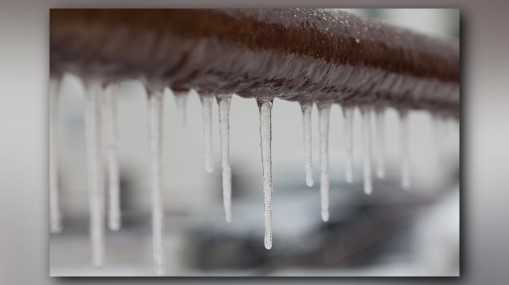Key Methods for Preventing Frozen Plumbing in Winter
Key Methods for Preventing Frozen Plumbing in Winter
Blog Article
We've come across the article involving Prevent Frozen Pipes listed below on the net and figured it made perfect sense to talk about it with you over here.

Winter can ruin your plumbing, particularly by freezing pipes. Right here's how to avoid it from occurring and what to do if it does.
Intro
As temperatures drop, the threat of frozen pipelines increases, potentially leading to expensive repair work and water damages. Understanding just how to stop icy pipes is critical for house owners in cold environments.
Comprehending Frozen Pipelines
What triggers pipes to ice up?
Pipelines ice up when subjected to temperature levels below 32 ° F (0 ° C) for prolonged periods. As water inside the pipelines freezes, it expands, putting pressure on the pipeline wall surfaces and potentially creating them to rupture.
Threats and problems
Frozen pipelines can cause water system interruptions, home damages, and expensive repair work. Ruptured pipelines can flooding homes and cause substantial architectural damages.
Signs of Frozen Water Lines
Determining icy pipelines early can stop them from breaking.
How to determine frozen pipelines
Search for decreased water flow from taps, uncommon smells or sounds from pipelines, and visible frost on exposed pipes.
Avoidance Tips
Insulating susceptible pipes
Wrap pipes in insulation sleeves or make use of warmth tape to secure them from freezing temperature levels. Concentrate on pipes in unheated or outside areas of the home.
Heating strategies
Keep interior spaces adequately heated up, specifically areas with pipes. Open closet doors to enable warm air to flow around pipes under sinks.
Protecting Exterior Pipes
Yard hoses and exterior taps
Detach and drain pipes yard hose pipes before winter season. Install frost-proof spigots or cover outside taps with protected caps.
What to Do If Your Pipes Freeze
Immediate actions to take
If you think icy pipelines, keep taps available to soothe stress as the ice thaws. Make use of a hairdryer or towels soaked in warm water to thaw pipelines gradually.
Long-Term Solutions
Structural adjustments
Consider rerouting pipelines far from exterior walls or unheated locations. Include extra insulation to attic rooms, cellars, and crawl spaces.
Upgrading insulation
Invest in top quality insulation for pipes, attic rooms, and wall surfaces. Appropriate insulation aids preserve constant temperature levels and lowers the danger of icy pipes.
Conclusion
Avoiding frozen pipes calls for positive steps and fast actions. By comprehending the causes, signs, and safety nets, property owners can shield their plumbing throughout cold weather.
Helpful Tips to Prevent Frozen Pipes this Winter
UNDERSTANDING THE BASICS: WHY PIPES FREEZE AND WHY IT’S A PROBLEM
Water freezing inside pipes is common during the winter months, but understanding why pipes freeze, and the potential problems it can cause is crucial in preventing such incidents. This section will delve into the basics of why pipes freeze and the associated problems that may arise.
THE SCIENCE BEHIND FROZEN PIPES
When water reaches freezing temperatures, it undergoes a physical transformation and solidifies into ice. This expansion of water as it freezes is the primary reason pipes can burst. As the water inside the pipe freezes, it expands, creating immense pressure on the walls. If the pressure becomes too great, the pipe can crack or rupture, leading to leaks and water damage.
FACTORS THAT CONTRIBUTE TO PIPE FREEZING
Low Temperatures: Extremely cold weather, especially below freezing, increases the risk of pipes freezing. Uninsulated or Poorly Insulated Pipes: Pipes located in unheated areas, such as basements, crawl spaces, or attics, are more prone to freezing. Insufficient insulation or lack of insulation altogether exacerbates the problem. Exterior Wall Exposure: Pipes running along exterior walls are susceptible to freezing as they encounter colder temperatures outside. Lack of Heating or Temperature Regulation: Inadequate heating or inconsistent temperature control in your home can contribute to frozen pipes. PROBLEMS CAUSED BY FROZEN PIPES
- Pipe Bursting: As mentioned earlier, the expansion of water as it freezes can cause pipes to burst, resulting in significant water damage.
- Water Damage: When pipes burst, it can lead to flooding and water damage to your property, including walls, ceilings, flooring, and personal belongings.
- Structural Damage: Prolonged exposure to water from burst pipes can compromise the structural integrity of your home, leading to costly repairs.
- Mold and Mildew Growth: Excess moisture from water damage can create a favorable environment for mold and mildew growth, posing health risks to occupants.
- Disrupted Water Supply: Frozen pipes can also result in a complete or partial loss of water supply until the issue is resolved.
WHY CERTAIN PIPES ARE MORE PRONE TO FREEZING
- Location: Pipes located in unheated or poorly insulated areas, such as basements, crawl spaces, attics, or exterior walls, are at higher risk of freezing.
- Exterior Pipes: Outdoor pipes, such as those used for irrigation or exposed plumbing, are particularly vulnerable to freezing as they are directly exposed to the elements.
- Supply Lines: Pipes that carry water from the main water supply into your home, including the main water line, are critical to protect as freezing in these lines can affect your entire plumbing system.
- Underground Pipes: Pipes buried underground, such as those connected to sprinkler systems or outdoor faucets, can be susceptible to freezing if not properly insulated.
https://busybusy.com/blog/helpful-tips-to-prevent-frozen-pipes-this-winter/

We were brought to that editorial on How to Prevent Your Pipes From Freezing from someone on another web address. If you appreciated our blog posting please consider to share it. I praise you for being here. Don't hesitate to check our blog back soon.
Schedule An Appointment Report this page